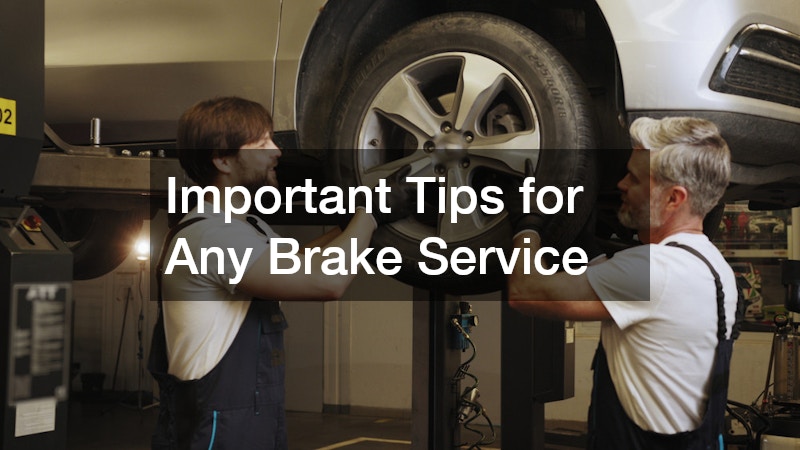Vehicle ownership is at its highest, with 93 percent of U.S. households owning at least one car. So, it’s not surprising that vehicle-related injuries and deaths are also on the rise. Among the leading causes of problems in this area is faulty machinery. In fact, in a 2021 survey of 1,200 car owners, a whopping 91.8 percent admitted to putting off vehicle maintenance.
Tuning up a car is an essential preventative measure that you can take to avoid such issues and keep your vehicle running smoothly. But what exactly does it entail?
Here’s a look at everything you need to know about tuning up your car, from what it is to how often you should do it.
What’s a Car Tune Up?

Proper maintenance is key to keeping your car running like new. A tune-up is a regularly scheduled service visit in which your mechanic checks and services the critical systems and components of your vehicle. Essentially, vehicle owners perform car tune-up for two reasons.
Regular Check-up
A tune-up allows your mechanic to catch minor problems before they become significant issues requiring expensive repairs. Additionally, it will enable them to check that your car’s systems are at their best and top off any fluids that may be low.
Performance Boost
Most vehicles experience deterioration due to wear and tear as they age. A car tune up can help restore some of your lost performance by replacing old parts, such as spark plugs and air filters.
Engine Tune up
An engine tune-up is necessary to boost the functionality of your vehicle. This improvement will also decrease the risk of a breakdown. The main objectives of an engine tune-up are to clean the fuel system, adjust the ignition timing, and set the idle speed.
What Does an Auto Tune up Include?
During a tune-up, your mechanic will carry out several tests and checks and perform some routine maintenance tasks. These will vary depending on the make and model of your car, but they typically include the following:
Ignition
The ignition system is the first thing that should be checked during a tune-up. That’s because it’s the component most likely to cause starting problems. Below parts of the electronic ignition system will be checked and, in some cases, replaced.
Ignition Timing
It is the timing of when the spark plugs fire in relation to the position of the pistons. It’s crucial that this is set correctly, as it can have a considerable impact on performance and fuel economy.
Spark Plugs and Spark Plug Wires
A spark plug plays a vital role in the combustion process, so it must always be in good condition. Spark plug wires transfer the electrical current from the ignition coil to the spark plugs. Over time, these parts can become brittle and cracked, which can cause starting problems. New spark plugs may be necessary if the old ones are fouled or damaged.
Coils
Ignition coil failure is another common cause of startup problems. The coil is responsible for providing the spark plugs with the high voltage they need to fire. If it’s not working correctly, the engine misfires, which will cause a loss of power.
Distributor Cap
This component sends the voltage from the ignition coil to the spark plug wires. It’s made from a conductive material, which is why it can degrade over time. Replacing it is a simple and effective way to improve performance.
Electrical Components
Other electrical components, such as the alternator, battery, and starter motor, will also be checked during a tune-up. These are vital components of the starting and charging system, so it’s essential to ensure they’re in good condition.
Fuel Filter
Fuel filters clean the fuel before it enters the engine. Over time, they can become clogged with dirt and debris, which can restrict fuel flow and cause problems. It’s a good idea to replace the fuel filter every 12 months or so.
Cabin Air Filters
The air filter is responsible for cleaning the air that enters the engine. A dirty air filter can cause contaminating particles to enter the machine, which can lead to premature wear. Other contaminants can also enter the cabin, affecting the air quality.
Transmission Fluid
Your car’s transmission is vital and needs to be well-lubricated with fresh fluid. It is responsible for transferring power from the engine to the wheels. The transmission fluid also helps to cool and protect the transmission components.
Other Fluids
Aside from the transmission fluid, other fluids will be checked during a tune-up. These include the engine oil, coolant, brake fluid, and power-steering fluid. These fluids play an important role in keeping your car running smoothly and safely. An oil change might be necessary if the oil is dirty or has broken down.
Belts and Hoses
Problems with a timing belt can cause engine damage, so it’s essential to check it during a tune-up. The same goes for the serpentine belt, which drives the engine accessories. All other belts should also be checked, as these are necessary for the rotating force required to operate the car.
Are There Tune-up Services You Don’t Need?
Some services are often included in a tune-up but aren’t actually as necessary as they should be. These are generally cosmetic or convenience-based services that don’t significantly impact performance.
Wheel alignment, for example, is often included in a tune-up package. While it’s true that alignment can improve handling and gas mileage, it’s not something that needs to be done every year. The same goes for exterior repainting, which is often recommended as part of a tune-up. This service isn’t necessary unless the paint has noticeable chips or scratches.
How Much Do Car Tune ups Cost?
There is no standard price for a car tune-up because the cost will vary depending on the make and model of your vehicle. The type of service will also affect the price, as more comprehensive tune-up will be more expensive.
You can expect to pay anywhere from $50 to $200 for a basic tune-up. On the other hand, a more comprehensive service could cost you upwards of $500.
Which Tune ups Can You Put Off?
Battery
The battery is one of the essential components of the electrical system. It provides the power needed to start the entire system and run the electrical accessories. A weak battery can cause starting problems and a loss of power. But replacing the battery shouldn’t be necessary unless it’s more than three years old.
Oxygen Sensor
The oxygen sensor is responsible for measuring the amount of oxygen in the exhaust fumes. The engine control unit uses this information to adjust the air-fuel mixture. A faulty oxygen sensor can restrict airflow and emissions. However, it’s not a major concern unless the check engine light is on.
Windshield Wipers
Windshield wipers are an essential safety feature and should be replaced if they’re damaged or worn out. But this isn’t something that needs to get done every year. In most cases, new wipers will only be needed every two years or so.
Why Do You Need a Car Tune up?

Regular tune-ups are necessary to keep your car running smoothly and efficiently. They help to prevent significant problems from developing and can improve performance. Although some tune-up services are more critical than others, they all play a role in keeping your car safe and reliable.
What are Signs Your Car Needs a Tune up?
Most manufacturers recommend getting a tune-up every 30,000 miles or so. But this can vary depending on the make and model of your vehicle. Your owner’s manual has specific recommendations you should follow.
There are also a few signs that your car might need a tune-up, even if it’s not yet due for one. If you notice any of the below issues, it’s a good idea to bring your car in for a check-up and prevent further damage.
Engine Lights are On
Modern vehicles have a complex system of sensors that monitor engine performance. A warning light will come on the dash if something isn’t working correctly. These lights alert you of a problem so you can fix it before it becomes serious.
Faulty Engine Performance
You’ll have to rely on your senses for older vehicles without warning lights to tell if something is wrong. If the engine is misfiring, rough idling, or lacking power, it may be time for a tune up.
Diminished Fuel Economy
A well-tuned engine will run more efficiently and use less fuel. So if you’ve noticed a sudden decrease in gas mileage, it’s a good idea to get your car checked out.
Problems on Brakes
Breaks eventually wear and may need to be tuned up. Worn-out brake pads can damage the rotor, which will cause a squeaking sound when you apply the brakes. If you notice this, take your car in for a tune-up as soon as possible.
Shaking or Vibrations
A significant change in how your car drives is another sign that something might be wrong. If the vehicle shakes or vibrates, it could indicate engine trouble.
Tune ups are an essential part of car maintenance. By getting tune-ups regularly, you can be confident that you’re making the most of your vehicle and ensuring its longevity. The above are just some of the many things you need to keep in mind regarding tune-ups. Be sure to consult with an expert if you’re unsure about anything. With their help, you can enjoy your car for years to come.





